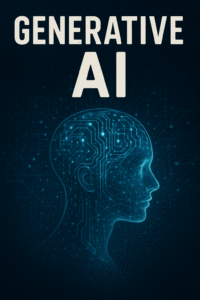Through the lens of Contextual AI, every moment offers an opportunity for mindfulness, paving the path to inner peace. Contextual AI systems, equipped with the ability to understand and adapt to the context of human experiences, can provide tailored interventions to promote mindfulness and foster tranquility. Let’s explore ten use cases to illustrate how Contextual AI can transform daily moments into opportunities for mindfulness and inner peace:
Use Case 1: Personalized Meditation Sessions
Contextual AI analyzes an individual’s schedule, stress levels, and preferences to recommend personalized meditation sessions tailored to their needs. Whether it’s a brief breathing exercise during a busy workday or a guided meditation session before bed, Contextual AI ensures that each meditation experience is optimized for maximum relaxation and mindfulness.
Use Case 2: Mindful Eating Guidance
Contextual AI offers real-time guidance during meal times, encouraging individuals to practice mindful eating habits. By analyzing factors such as food choices, eating speed, and hunger cues, Contextual AI helps users savor each bite, fostering a deeper connection with their food and promoting mindful eating practices.
Use Case 3: Ambient Relaxation Environments
Contextual AI controls smart home devices to create ambient relaxation environments tailored to individual preferences. From adjusting lighting and temperature to playing soothing music or nature sounds, Contextual AI transforms living spaces into tranquil sanctuaries, inviting moments of mindfulness and inner peace throughout the day.
Use Case 4: Stress Management Alerts
Contextual AI monitors physiological signals such as heart rate and skin conductance to detect signs of stress or anxiety. When elevated stress levels are detected, Contextual AI sends gentle reminders and prompts for relaxation techniques, helping individuals manage stress in real-time and fostering a sense of calmness and well-being.
Use Case 5: Mindful Commuting Practices
Contextual AI provides guidance for mindful commuting practices, offering tips and reminders to promote relaxation and presence during transit. Whether it’s mindful breathing exercises during a commute or listening to calming music or podcasts, Contextual AI helps individuals make the most of their travel time, reducing stress and cultivating inner peace.
Use Case 6: Digital Detox Recommendations
Contextual AI recognizes patterns of excessive digital usage and prompts individuals to take breaks for digital detoxification. By encouraging unplugging from screens and engaging in offline activities such as nature walks, reading, or spending time with loved ones, Contextual AI supports mental rejuvenation and fosters mindfulness in the digital age.
Use Case 7: Sleep Optimization Strategies
Contextual AI analyzes sleep patterns and environmental factors to recommend personalized sleep optimization strategies. From adjusting bedroom lighting and temperature to suggesting relaxation techniques or bedtime routines, Contextual AI helps individuals create conducive environments for restful sleep, promoting inner peace and well-being.
Use Case 8: Mindful Work Breaks
Contextual AI encourages individuals to take mindful work breaks throughout the day to recharge and refocus. By suggesting short mindfulness exercises, stretching routines, or outdoor walks, Contextual AI helps individuals alleviate work-related stress and enhance productivity while fostering moments of mindfulness and relaxation.
Use Case 9: Gratitude Journaling Prompts
Contextual AI prompts individuals to engage in gratitude journaling, encouraging them to reflect on positive experiences and moments of gratitude throughout the day. By fostering a mindset of gratitude and appreciation, Contextual AI promotes mindfulness and inner peace, cultivating a greater sense of contentment and well-being.
Use Case 10: Mindful Social Interactions
Contextual AI offers guidance for mindful social interactions, encouraging individuals to engage in active listening, empathy, and presence during conversations. By providing real-time feedback and suggestions for mindful communication techniques, Contextual AI fosters deeper connections and enriches interpersonal relationships, contributing to overall well-being and inner peace.
In conclusion, Contextual AI empowers individuals to embrace mindfulness and cultivate inner peace in every moment of their lives. By leveraging the capabilities of Contextual AI across various contexts and experiences, we can transform daily routines into opportunities for mindfulness, fostering greater well-being, resilience, and harmony in our lives.











